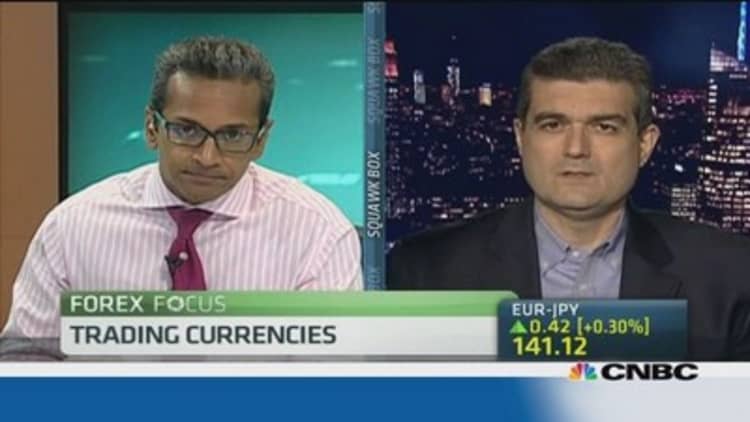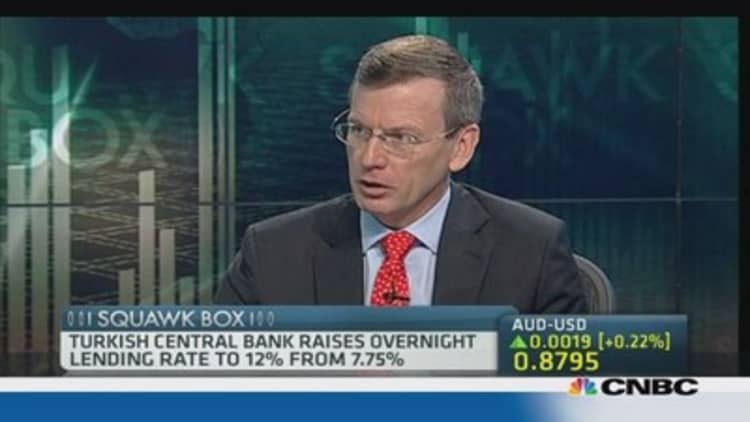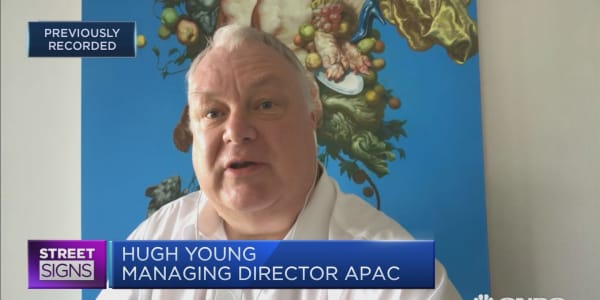
A massive interest-rate hike from Turkey is a decisive step to shore up its battered currency, but by no means marks the beginning of the end of troubles for beleaguered emerging markets, analysts say.
Turkey's central bank late on Tuesday delivered a hefty 425 basis point rise in overnight lending rates to defend a crumbling lira.
(Read more: Turkey delivers massive rate hike to defend lira)
Investors gave the move a clear thumbs up, with the Turkish lira bouncing. At 2.25 per dollar on Wednesday, the lira held comfortably above this week's record low of about 2.39 per dollar.
U.S. stock futures jumped after the rate hike, while Asian stock markets opened sharply higher, painting a positive backdrop for European markets which open later in the day.
While analysts applauded the aggressive action from Turkey's central bank, especially in the face of opposition from the country's prime minister, they added that emerging market woes are far from over.
"This [rate hike] really helps the situation in Turkey but it doesn't necessarily calm everyone's nerves across the emerging markets spectrum," Ed Ponsi, managing director at Barchetta Capital Management, told CNBC Asia's "Squawk Box." "I don't think it does anything to make people feel better about Argentina for example, which is a completely different situation."
Emerging markets have come under renewed pressure in the past week, hit by concerns about China's economy and the impact of a tapering of the U.S. Federal Reserve's monetary stimulus - especially on those countries with a high debt burden.
"The action [in Turkey] is likely to quell current talk; however it won't completely remove the fear that emerging nations with balance sheets that are heavily indebted may struggle over the year," said Evan Lucas, market strategist at trading firm IG, in a note.
Indeed, the Fed is expected to continue unwinding its asset-purchase program when it concludes a two-day meeting on Wednesday.
The Argentine peso hit a record low at around 8.13 per dollar last week, while the South African rand hit a five-year low at just over 11 per dollar on Monday.
(Read more: India saves the day…Now it's Turkey's turn)

China watch
"It is premature to celebrate yet and the story with Turkey is more political than economic, so we will have to see if the rate hike is enough to stabilize the economy although it has stabilized markets for now," said Boris Schlossberg, a managing director at BK Asset Management in New York.
Schlossberg added that the big problem for emerging markets was not from volatility in countries such as Turkey or Argentina but from deeper problems in heavyweights such as China.
(Read more: Why people fear a shadow banking crisis in China)
"The critical question is how China handles a soft landing and the jury on that is still out," he said. "One break in the Chinese banking system could precipitate a much bigger source of turmoil than we're seeing right now."
Fears about China's banking system have flared up recently because of a financial product known as a wealth management product that was expected to default this week until an 11th-hour agreement resolved the situation.
Analysts said individual action by central banks should go some way to shore up local markets.
Earlier on Tuesday, India delivered a surprise interest rate hike and said it was better placed to deal with the risk of major capital outflows from emerging markets. And the spotlight is likely to turn to South Africa's central bank, which meets later in the day.
"Turkey's move does raise the bar for them [South Africa]. They will have to stave off speculators," said Schlossberg.
— By CNBC.Com's Dhara Ranasinghe; Follow her on Twitter @DharaCNBC





